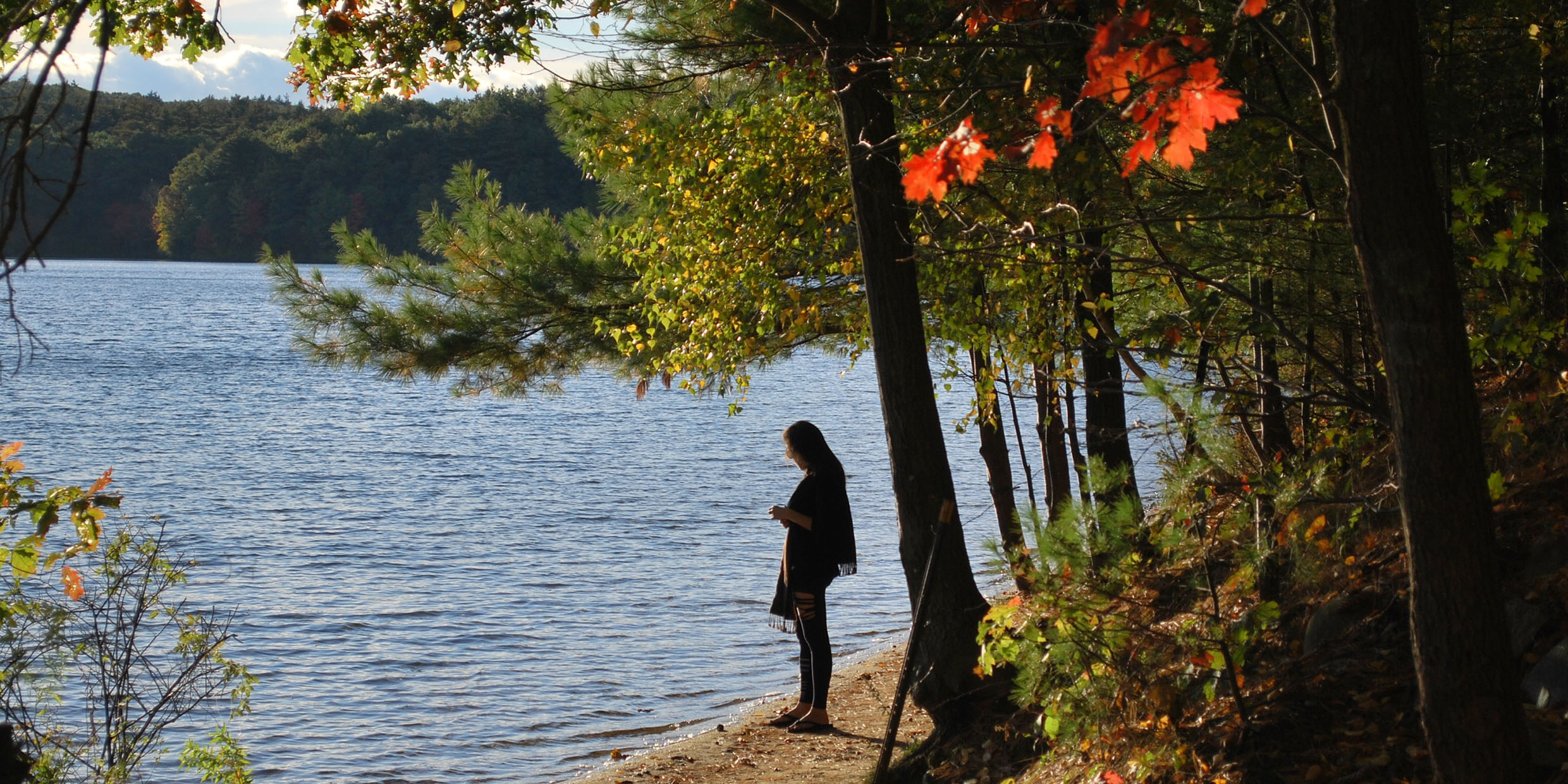Originally published 1 March 1999
“In wildness is the preservation of the world,” said Thoreau, and his felicitous phrase has become something of a mantra for conservationists.
But what did Thoreau mean to preserve? And what do we mean to conserve?
“Give me a wildness whose glance no civilization can endure,” he said. Another mantra much quoted by conservationists. But what does it mean?
Thoreau used the latter phrase in his journal as a snappy put-down of his oh-so-civilized neighbors.
Then, in his essay Walking, he used the phrase again: “Give me a wildness whose glance no civilization can endure — as if we lived on the marrow of koodoos devoured raw.”
What an image! The philosopher of Concord hunkered down on the African veldt extracting antelope bone marrow with a stick, his chin running with blood.
More likely to find him daubing his lips with linen in Emerson’s dining room.
“Hope and the future for me are not in lawns and cultivated fields, not in towns and cities, but in the impervious and quaking swamps,” wrote Thoreau, and we know we are listening to farfetched rhetoric, a crazy, cockeyed dream. Thoreau wouldn’t have survived a week, alone, without the accouterments of civilization, in, say, the Okefenokee or the Everglades.
This conflicted nonsense from Thoreau rubs off on many present-day conservationists. Against civilization they posit the tonic of wildness — nature unsmudged by the rapacious hand of man, a pre-Eden paradise where the rivers run free and the lion lies down with the lamb.
Of course, in the real wild world, the lion has the lamb for dinner, and the rivers are bloody arenas of eat or be eaten.
Every species on Earth, with one exception, has a single objective: Get mine. Selfishness is built into creation from the genes up. If the wilderness presents an appearance of harmony, it is because millions of years of deadly competition have produced a balance of power — a stand-off of mutually assured destruction.
Poet/conservationist Gary Snyder writes: “Wilderness is a place where the wild potential is fully expressed, a diversity of living and nonliving beings flourishing according to their own sorts of order.”
That’s the Thoreauvian romantic speaking. In fact, “their own sorts of order” can be reduced to one invariable law: Nature red in tooth and claw.
The romantic view of nature is extended by conservationists to human hunter/gatherer societies, and particularly, in this country, to extolling Native American wisdom as the antidote to our environmental problems. But the hunter/gatherer way of life will not save wildness, any more than it keeps snowmobiles and all-terrain vehicles out of Native American garages, or frozen TV dinners out of Native American refrigerators.
There is much to be admired about the Native American environmental ethic, but there are few of us of any cultural background who prefer raw bone marrow to the taste of a Big Mac.
The first fact we have to accept is this: Science and technology are not going away. Human technological domination of this planet is the bottom line where every conservation ethic must begin. The untrod wilderness is finished, kaput. Whatever happens for good or bad in the forest, mountains, desert, or sea will happen by human design. Even Thoreau knew this: In a journal entry for August 30, 1856, he wrote, “It is vain to dream of a wildness distant from ourselves.”
So what do we want to save? No species other than our own could even ask the question. Only humans have evolved the intelligence to imagine an escape from nature’s dogma of species self-interest. Call it civilization, call it wisdom, call it whatever you want, but it means we are effectively free to create the kind of environment we want.
And what we apparently want is more and more technology, but with protected enclaves of natural beauty — forest parks, wild rivers, nature preserves. We want our house in the ever expanding suburbs, but we also want our children to see a wild condor soaring above a pristine landscape. We want the ersatz glitz of Orlando and the wild egrets of the Everglades.
Can we have our technology and a taste of wilderness too? Yes, but only if we build an environmental ethic on the evolving wisdom of technological civilization. It is not the experience of hunter/gatherer societies that will save the condor and the egret, but the methods of science.
The decisions to be made are social and political, pitching civilized generosity against wild self-interest, scientific ecology versus consumerist greed, hope versus handwringing.
“We have built a greenhouse, a human creation, where once there bloomed a sweet and wild garden,” writes doom-and-gloom conservationist Bill McKibben. Nonsense. The “sweet and wild garden” never existed, and a “greenhouse” may not be a bad thing if its built with compassion, self-restraint, and an eye for beauty.
Wildness is not the preservation of the world; it is our own wild nature that threatens biodiversity and non-human environments. The solution is to draw upon our more generous impulses, and our science and technology, to study, love, and protect what in our wild abandon we could wipe out in the blink of an eye.
In civilization is the preservation of the world.



